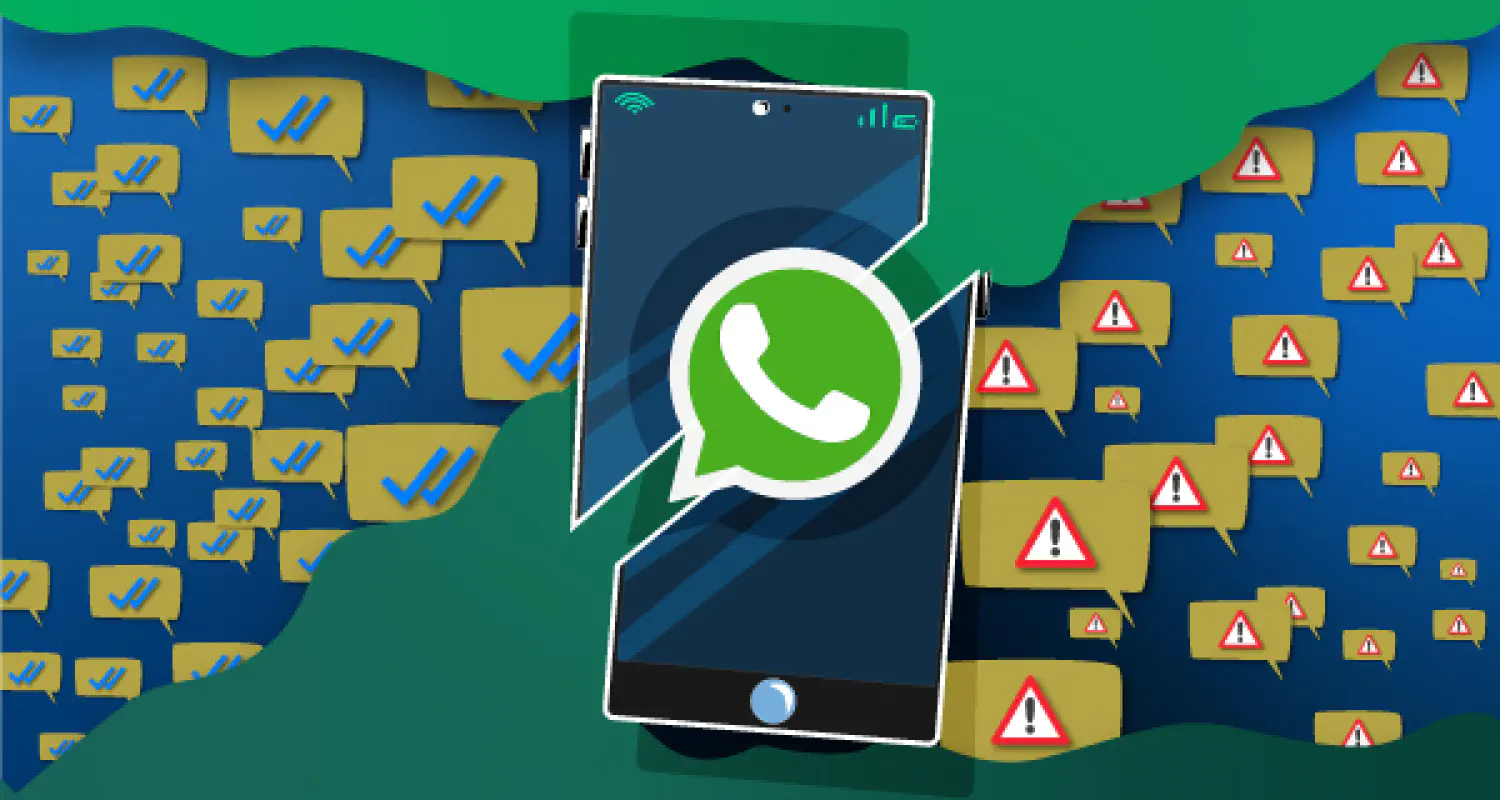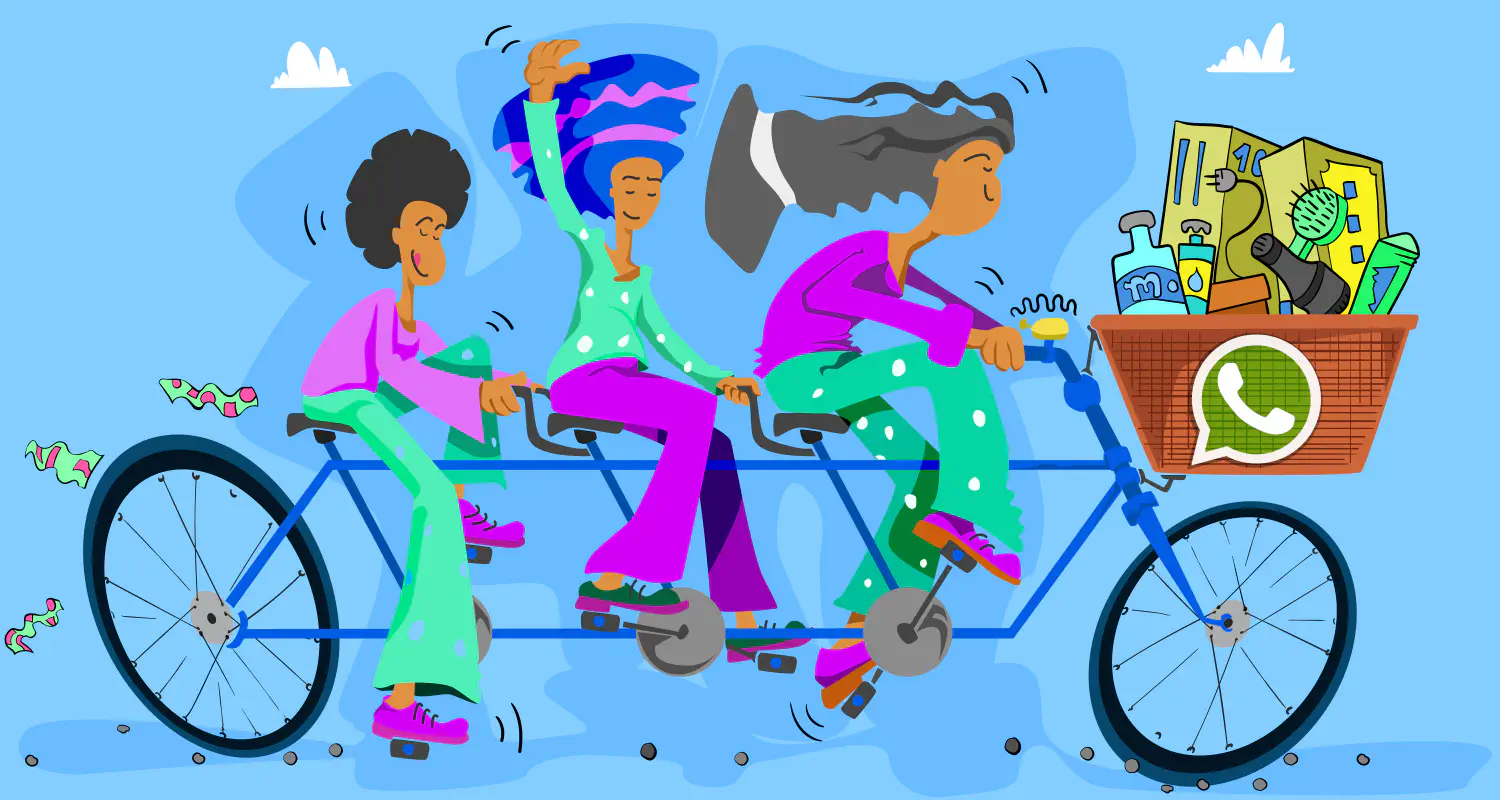Send Personalized Product Recommendations With WhatsApp
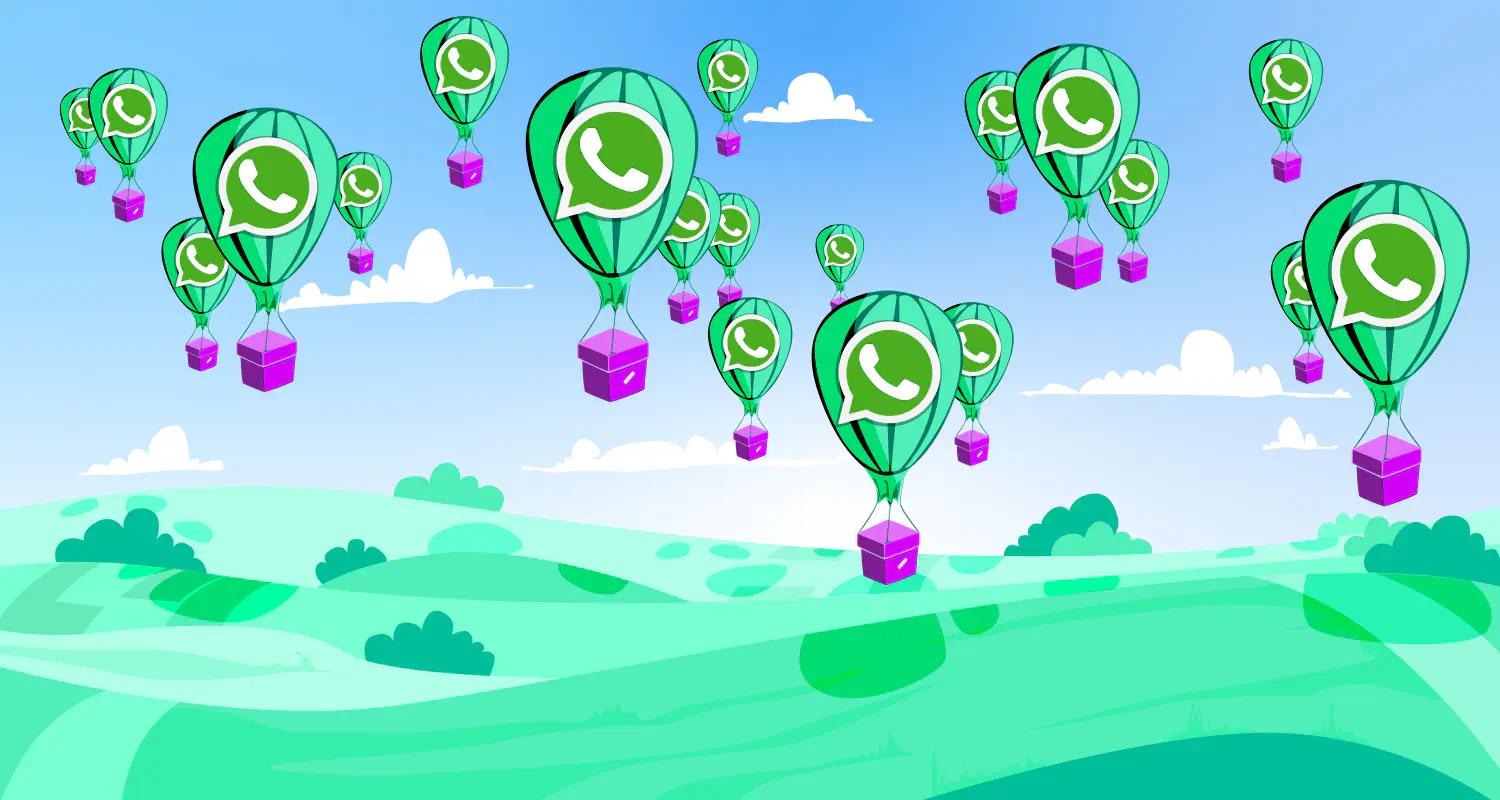
Personalization is not just a passing trend in marketing. It’s a necessity for today’s market. Without personalization, you’ll simply fall behind competitors focusing more on customers’ interests and preferences.
Personalization plays a crucial role in customer experience and loyalty. Consumers have come to expect personalized experiences from businesses, and failure to deliver can lead to frustration and loss of loyalty. The statistics show that many consumers are willing to switch to a competitor after just one bad experience, indicating that businesses need to prioritize personalization to retain customers. Therefore, it is essential for businesses to invest in personalization strategies to enhance customer experience, retain customers, and gain a competitive edge.
- 76% of consumers get frustrated by businesses not offering personalized experiences.
- 62% of consumers say a brand will lose their loyalty if it delivers a non-personalized experience.
- 50% of consumers will switch to a competitor after one bad experience, and 80% will switch to a competitor after more than one bad experience
Consumers want to feel that your products and services are tailored to their needs. By providing personalized experiences and targeted offers, you can increase your chances of capturing the consumer’s attention and ultimately persuading them to purchase.
Using WhatsApp to send personalized product recommendations is a great way to engage with customers on a personal level and increase conversions.
About personalized product recommendations
You can use WhatsApp to send customized product suggestions to individual customers based on their browsing or purchase history. This can be done through the use of WhatsApp’s business API, which allows businesses to automate and scale their communication with customers.
Requirements
Before we dive into specific strategies and tips for connecting products with the target market, let’s see the requirements for sending effective personalized product recommendations.
- WhatsApp Business account: To use WhatsApp Business Platform/API, you need to have a Business Account. This verified account allows you to interact with customers.
- WhatsApp Business Platform/API account: This will give you access to the necessary tools and features to automate and scale your customer communication.
- Customer data: To personalize product recommendations, you will need to have information about your customers, such as their names, interests, and purchase history. This data can be collected through your website or through other channels, like WhatsApp or social media.
- Customer communication platform: To interact with customers and automate the process of sending personalized product recommendations, you will need to connect the API to a customer communication platform, such as Rasayel. This will allow you to segment your customers and send personalized messages based on their behavior or interests.
- Compliance with WhatsApp Policies: To use WhatsApp Business Platform/API, you must comply with WhatsApp Business Messaging Policy and WhatsApp Commerce Policy. The policies set out guidelines for using the API, including rules around sending messages, collecting customer data, and handling customer complaints. Compliance with the policies is mandatory, and non-compliance can result in penalties or suspending your WhatsApp Business Platform/API account.
Why WhatsApp Business Platform/API?
The programmable nature of the API allows you to build custom solutions on top of WhatsApp using tools and features such as:
- Team inbox
- message templates
- complex automation and chatbots
- advanced broadcasts
- analytics, and more.
These tools and features can increase efficiency and improve conversion and retention rates.
It’s worth noting that WhatsApp Business Platform/API differs from the WhatsApp Business app. Since the API doesn’t have a user interface, you’d need to create it yourself (if you are a technical person or have a tech team) or connect it to third-party software like Rasayel where you can take advantage of all the benefits the API has to offer.
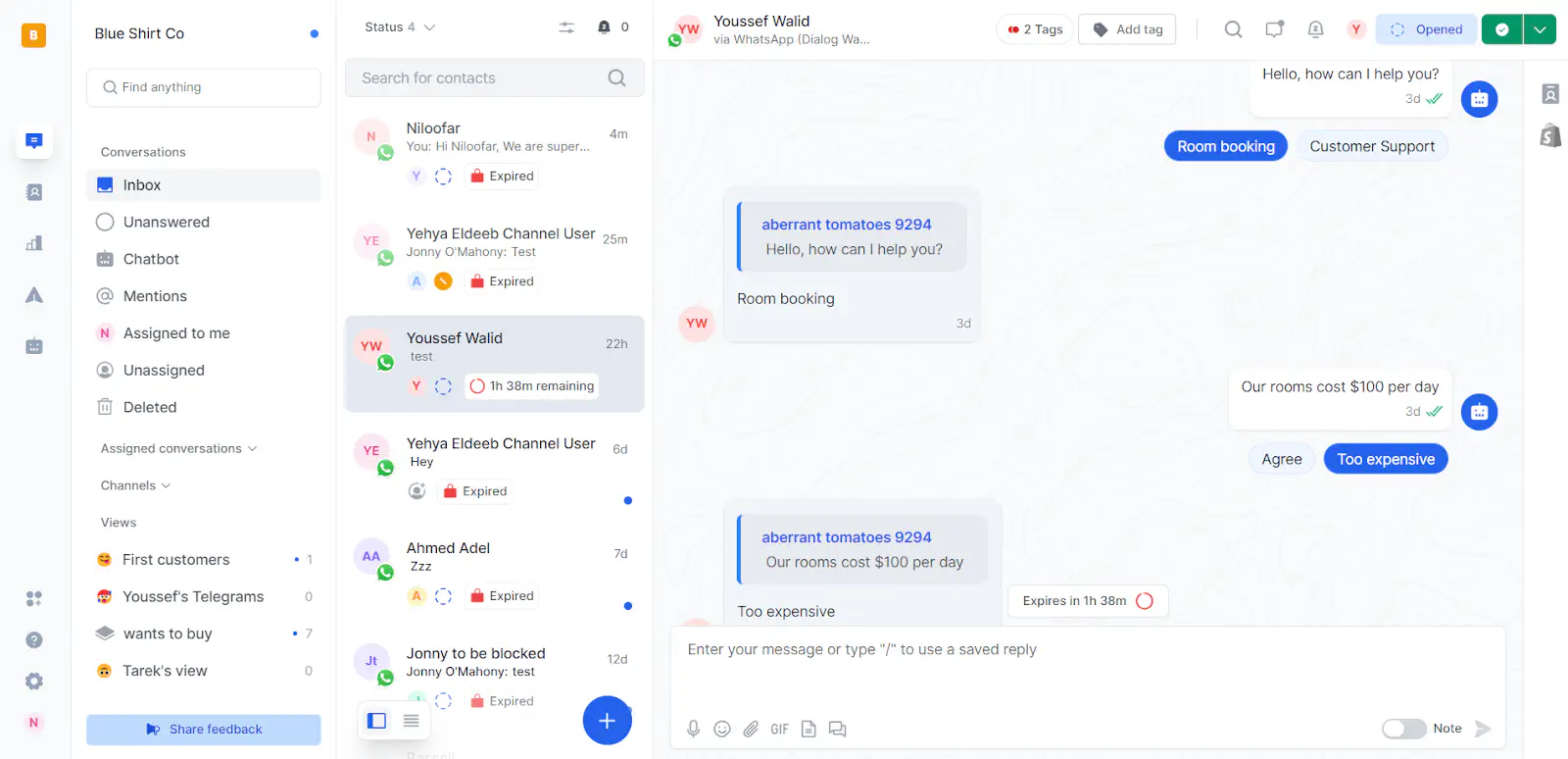
If you want to learn more about the app and the API, read our post “What Is the WhatsApp Business API?”
Businesses using the WhatsApp Business Platform/API use message templates to initiate conversations with their customers. WhatsApp message templates are pre-approved message formats that can be personalized for each customer. Templates are helpful if you frequently send similar messages to customers, such as appointment reminders, shipping updates, promotional offers, and product recommendations.
For more information on message templates, read: “All about Promotional WhatsApp Message Templates” and "All About Interactive WhatsApp Message Templates."
How to send personalized product recommendations?
Sending product recommendations can be an effective way to increase customer engagement and drive sales. The first step is connecting the WhatsApp Business Platform/API with a customer communication platform or CRM and using the customer’s purchase history to make custom recommendations. With Rasayel your team can collaborate in a Team inbox, you can deploy chatbots to automate the workflows, use message templates, and monitor your campaigns. In short, you have everything you need to automate the process and make it more efficient.
Here are a few tips to help you get the most out of your personalized product recommendations on WhatsApp:
Create a customer profile and track customer behavior
Monitor customer behavior on your website. This can give you valuable insights into what products your customers are interested in and help you create targeted and personalized product recommendations. There are several ways to monitor customer behavior on your website:
- Google Analytics is a free tool that allows you to track visitor behavior on your website, such as page views, bounce rate, and conversion rate. It also provides insights into where your visitors are coming from and what pages they visit.
- Heat mapping tools like Hotjar and Crazy Egg track how visitors interact with your website by recording clicks, scrolls, and mouse movements. This can give you insight into which areas of your website are getting the most attention.
- A/B testing tools like Optimizely and VWO allow you to test different website versions to see which one performs best. This can help you make data-driven decisions on design and layout changes.
- Session Recording tools like Mouseflow or FullStory, allow you to watch recordings of user sessions on your website, which gives you an understanding of how users interact with your website and where they may be facing issues or dropping off.
- Surveys can give you valuable insights into what customers like and dislike about your products. You can use survey tools like SurveyMonkey to ask them for their feedback on your website.
All of these tools have a free and paid version and can be easily integrated into your website.
Customize the approach for each customer segment
Use your customer data to segment your customer base into different groups based on demographics, purchase history, browsing behavior, etc. This will allow you to send more relevant and personalized product recommendations to different customer groups.
For example, you can suggest similar products to ones a customer has previously purchased or recommend items that complement their current purchase.
Send messages at the right time
Sending personalized product recommendations at the right time can significantly increase their effectiveness and the likelihood of conversion. Here are a few examples of how to use timing to send personalized product recommendations:
- When customers have shown recent interest in a product or category: If a customer has been browsing a specific product or category on your e-commerce platform, you can use this information to send them product recommendations related to that product or category. You can use a chatbot to send them a message with suggestions or use a quick reply button in the chat to show them related products.
- After a customer has made a purchase: You can use their purchase history to send them product recommendations related to the product they just bought. These events are as well ideal for interactions driven by chatbots.
- Based on the customer’s history: By analyzing the customer’s past purchases, you can understand the customer’s preferences and interests, then use this data to send recommendations that align with those interests.
- During special events or holidays: For Christmas, Valentine’s Day, or Mother’s day, you can send recommendations based on the occasion. For example, you can send personalized product recommendations for Valentine’s Day gifts to customers recently purchasing jewelry on your platform.
Send single and multi-product messages
You can leverage single and multi-product messages to tailor your recommendations to each customer’s preferences and increase the chances of them purchasing.
Single-product messages are great for showcasing a product that you think would be particularly interesting to a customer based on their purchase history or browsing behavior.
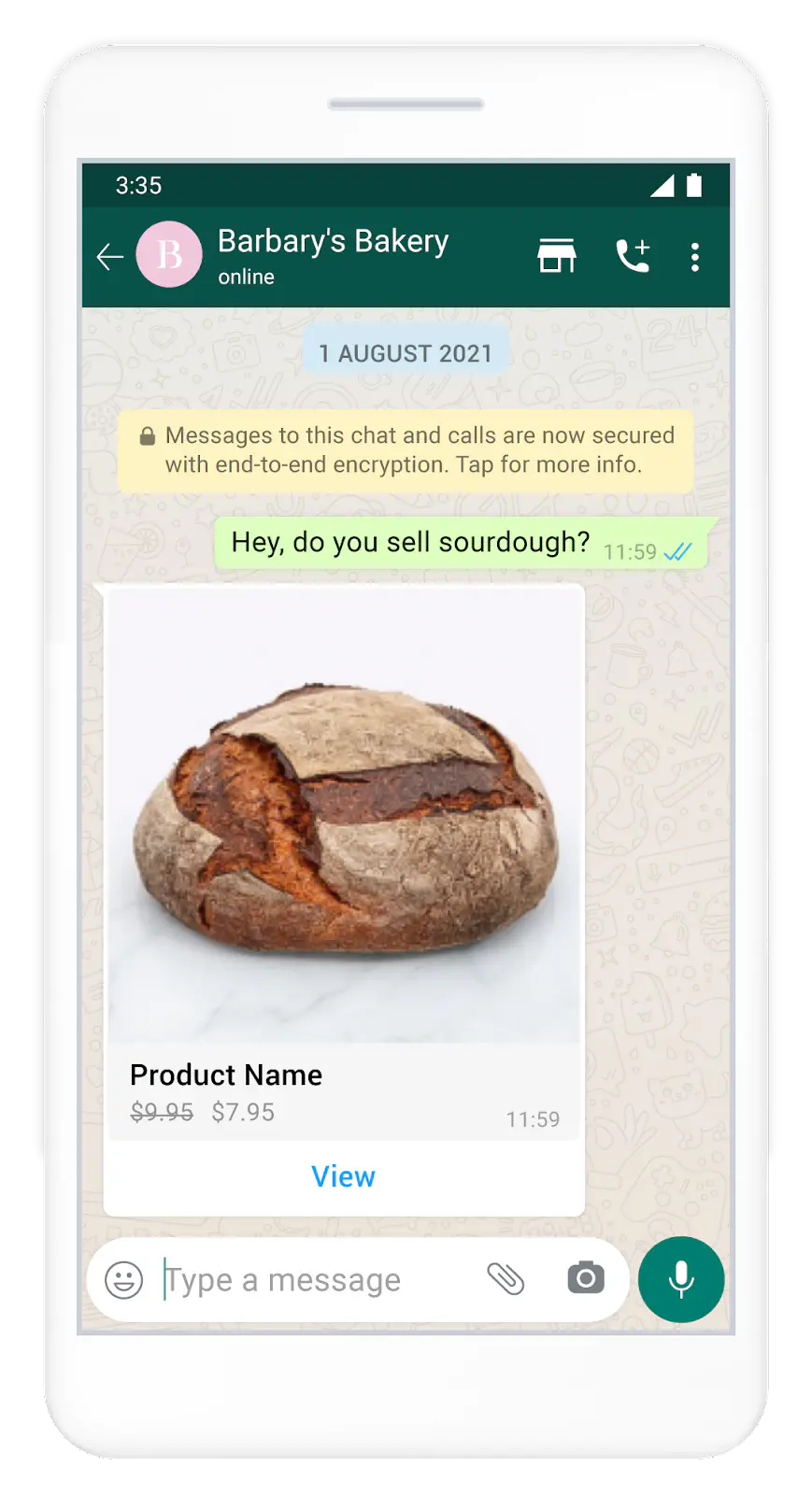
Multi-product messages are ideal for recommending a range of products that you think a customer might be interested in based on their past purchases or browsing history.
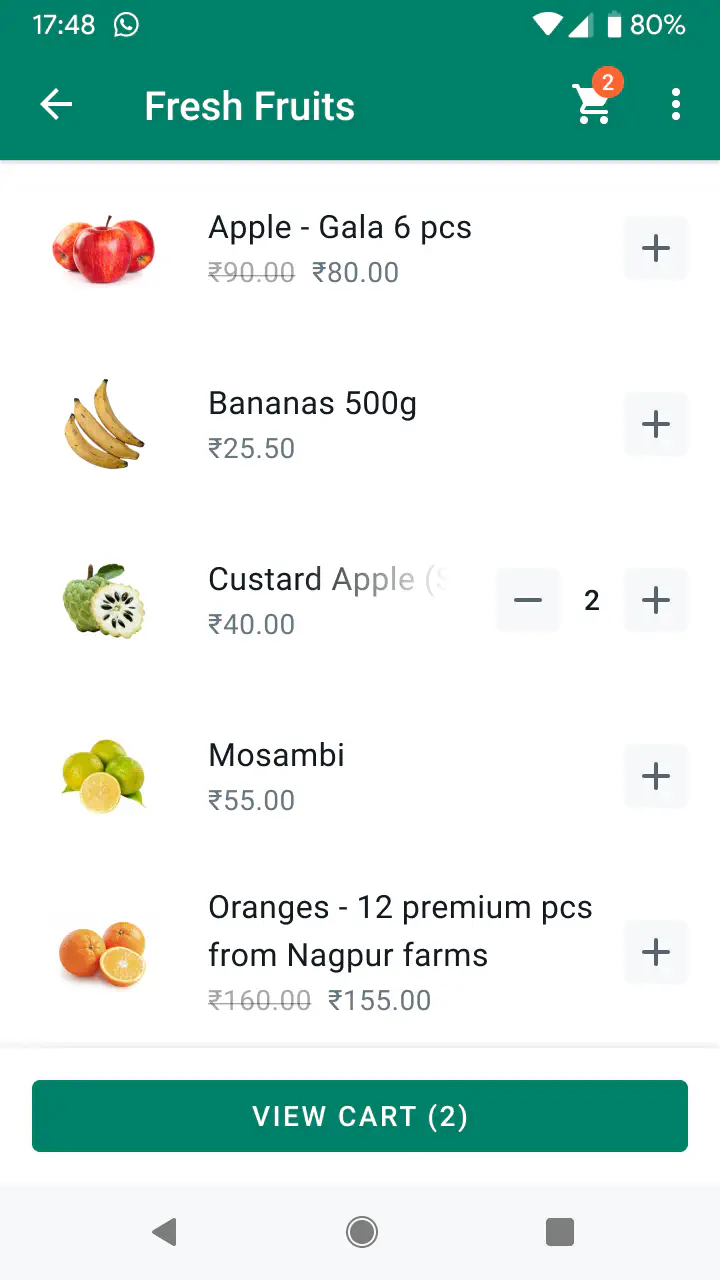
You can use this type of message to create a personalized shopping experience for your customers by showcasing products that match their preferences.
Use WhatsApp chatbots to automate the process
In Rasayel and similar platforms, you can create a chatbot to interact with customers and send product recommendations based on their interactions. By configuring the chatbot to ask questions about the customer’s preferences and interests, you can use the answers to send the right recommendations based on their interests and preferences.
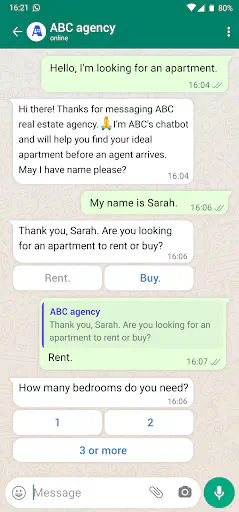
Monitor engagement
Monitoring engagement is essential in understanding your product recommendations’ effectiveness. Here are a few ways to monitor engagement:
- Track click-through rates: Keep track of how many customers click on your product recommendations links. This will give you an idea of which products get the most engagement and which are not as popular.
- Track conversion rates: Track how many customers purchase after receiving a product recommendation. This will give you an idea of which products will most likely lead to a sale.
- Monitor customer feedback: Monitor customer feedback on the products you recommend. You can add labels to conversations to sort and organize customer interactions. This will give you an idea of which products customers like and which they don’t.
- Track customer retention: Track the number of customers who continue purchasing after receiving a product recommendation. This will give you an idea of how well your personalized product recommendations are helping to retain customers.
If you notice that a particular product is not getting much engagement, you can adjust the recommendation to include similar products that may be more popular. On the other hand, if you notice that a particular product is getting a lot of engagement, you can adjust the product recommendation to include more similar products.
It’s also important to note that you should always respect the customer’s preferences and not send them too many messages or at inappropriate times.
Conclusion
Personalization is crucial in today’s market to capture consumers’ attention and ultimately persuade them to purchase. Using WhatsApp to send personalized product recommendations is an effective way to engage with customers on a personal level and increase conversions.
By developing the right strategy, you can build and nurture customer relationships, leading to increased engagement, conversion, and customer retention.
Learn more
If you’d like to learn more about how WhatsApp can help you grow your business, please reach out to us on WhatsApp at +13024070488.
We also offer a free consultation session where we review your use case, answer any questions about WhatsApp, and help you build a strategy to make the best out of the platform. Book a call with us here. We’d love to speak with you:
For Europe, the Middle East, and Africa

Hania is a seasoned researcher and content writer specializing in WhatsApp Business and its role in B2B sales and customer engagement. With years of experience creating in-depth, thought-provoking content, she combines real-life use cases and deep industry insights to help businesses leverage WhatsApp as a growth tool. Her expertise lies in translating complex research into actionable strategies, making her a trusted resource for companies looking to innovate their communication and sales processes.



